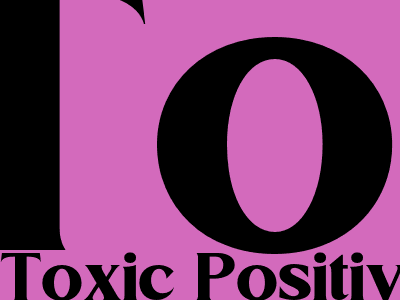Understanding Toxic Positivity
What is Toxic Positivity?
Toxic positivity is a widespread yet harmful tendency to suppress or deny negative emotions in favor of maintaining a positive, upbeat demeanor. It often manifests as a refusal to acknowledge or address challenges, disappointments, or setbacks, instead promoting an unrealistic and unsustainable expectation of constant happiness and positivity.
While cultivating a positive outlook and practicing gratitude can be beneficial, toxic positivity takes this approach to an extreme, dismissing or invalidating genuine feelings of sadness, anger, or discomfort. This can create a culture of silence and isolation, where individuals feel pressured to conform to an artificially cheerful facade, even when it's not an accurate reflection of their inner state.
Toxic positivity can have detrimental effects on mental health, as it discourages individuals from expressing and processing their emotions healthily. It can lead to feelings of shame, inadequacy, and isolation as people may fear being judged or criticized for not maintaining a positive attitude.
Recognizing Toxic Positivity
Recognizing toxic positivity can be challenging, especially when it's presented as well-intentioned encouragement or support. Here are some key indicators:
- Denying or Dismissing Negative Emotions: People who engage in toxic positivity often minimize or dismiss negative emotions as unimportant, weak, or wrong.
- Ignoring or Avoiding Problems: Toxic positivity can manifest as a tendency to avoid or ignore difficult situations or challenges, rather than addressing them directly.
- Pressuring Others to Be Positive: Individuals who embrace toxic positivity may pressure others to maintain a positive attitude, even when it's not genuine or appropriate.
- Expecting Constant Happiness: Toxic positivity promotes the unrealistic expectation that individuals should always be happy and optimistic, regardless of circumstances.
It's important to remember that experiencing negative emotions is a normal and healthy part of life. Suppressing or denying these emotions can lead to emotional dysregulation and impede personal growth.
Overcoming Toxic Positivity
Overcoming toxic positivity requires a conscious effort to challenge unrealistic expectations and create a healthier relationship with your emotions. Here are some strategies:
- Acknowledge and Validate Your Emotions: Allow yourself to feel and process your emotions without judgment. It's okay to be sad, angry, or disappointed.
- Practice Self-Compassion: Treat yourself with the same kindness and understanding you would extend to a friend. Remember that you're human and not perfect.
- Seek Support: Talk to trusted friends, family members, or a therapist about your experiences with toxic positivity. They can provide support and a listening ear.
- Challenge Unrealistic Expectations: Recognize that it's not realistic to be happy all the time. Life has its ups and downs, and it's okay to experience both.
- Focus on Progress, Not Perfection: Instead of striving for constant positivity, aim for making progress in managing your emotions and building resilience.
Overcoming toxic positivity is an ongoing process that requires self-awareness, self-compassion, and a willingness to embrace the full range of human emotions.
Conclusion
Toxic positivity is a harmful trend that can undermine mental health and well-being. By recognizing and challenging toxic positivity, we can create a more balanced and emotionally healthy approach to life. It's okay to feel and express a range of emotions, and it's essential to create a supportive environment where people feel safe and valued, regardless of their emotional state.

Comments